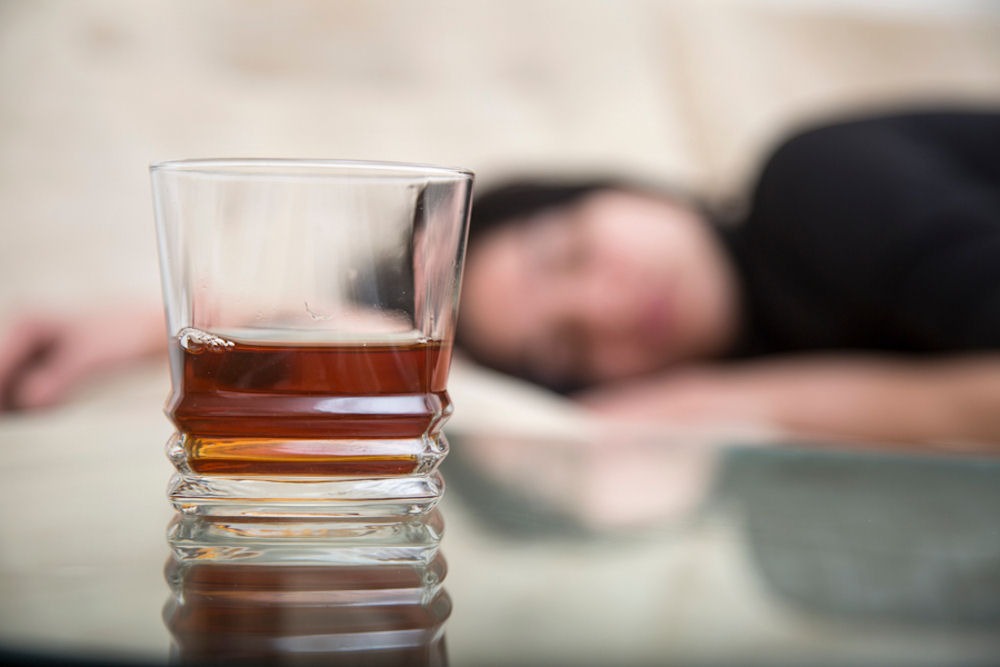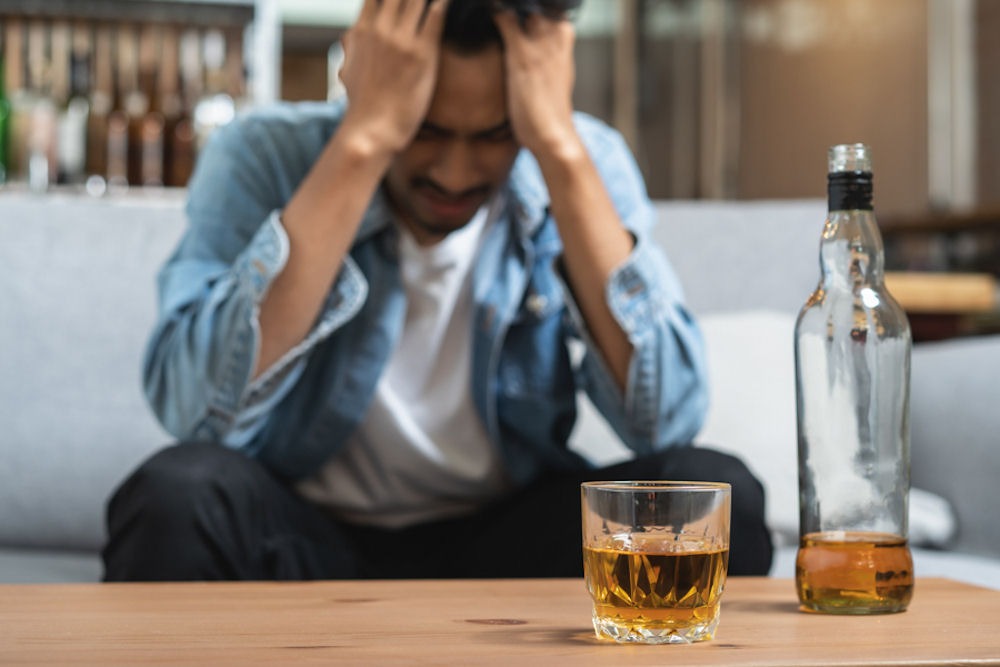The difference between male and female alcohol consumption lies in biology and physiology. Women typically absorb alcohol faster and metabolize it more slowly than men due to lower body water content and enzyme levels. Hormonal differences also affect alcohol’s impact, leading to greater health risks for women at lower levels of consumption.
What are the Gender Differences?
Jump to Section
The difference between male and female alcohol consumption is influenced by various biological, social, and cultural factors. Biologically, men generally have a higher concentration of water in their bodies compared to women, which affects how alcohol is metabolized. Women tend to have a higher percentage of body fat and lower levels of the enzyme dehydrogenase, which helps break down alcohol, resulting in higher blood alcohol concentrations when consuming similar amounts of alcohol as men. This biological difference often means that women may feel the effects of alcohol more quickly and intensely than men.
Socially, alcohol consumption patterns can vary significantly between genders. Historically, men have been more likely to engage in heavy drinking and binge-drinking behaviors, often associated with socializing and risk-taking. This can be linked to cultural norms that promote drinking as a masculine activity. On the other hand, women are increasingly participating in drinking culture, with research showing a rising trend in alcohol consumption among women, particularly in specific demographics.
Additionally, the reasons for consuming alcohol may differ. Men might drink primarily for sociability or to celebrate, while women may use alcohol as a coping mechanism for stress or emotional challenges. This difference in motives can affect the overall impact of alcohol on different genders, including health risks and the potential for developing alcohol dependency.
Understanding these differences is crucial for addressing alcohol-related issues and promoting responsible consumption, tailored to the unique challenges faced by each gender—and for providing effective, personalized alcohol addiction treatment when needed.
Why Does Alcohol Affect Men and Women Differently?

Alcohol affects men and women differently due to a combination of biological, physiological, and sociocultural factors. Understanding these differences is critical for addressing alcohol-related behaviors and health outcomes effectively.
Biologically, one of the most significant factors is body composition. Men generally have a higher percentage of water in their bodies compared to women, which helps dilute alcohol in the bloodstream. Conversely, women have a higher proportion of body fat, which can lead to a higher blood alcohol concentration (BAC) after consuming the same amount of alcohol. This difference in body composition means that women often feel the effects of alcohol more quickly and intensely than men.
Additionally, the way alcohol is metabolized plays a crucial role. Women tend to have lower levels of the enzyme alcohol dehydrogenase, which is responsible for the breakdown of alcohol in the stomach and liver. This lower enzyme activity can increase the amount of alcohol that enters the bloodstream, leading to a quicker onset of effects and prolonged intoxication.
Culturally and socially, drinking behaviors also vary between genders. Traditionally, men have been more likely to engage in heavy drinking and binge drinking, often tied to socializing or celebrations, while women have historically faced societal pressures that discourage excessive drinking. However, recent trends show an increase in alcohol consumption among women, reflecting shifts in social norms and increased participation in drinking culture.
Moreover, the motivations for alcohol consumption can differ between genders. Men might drink to enhance sociability or assert masculinity, whereas women are more likely to use alcohol as a coping mechanism for emotional stress. These varied reasons lead to different drinking patterns, health risks, and potential for alcohol use disorders, underscoring the need for tailored preventive strategies and interventions for each gender. Understanding these nuanced differences is crucial for fostering responsible drinking practices and promoting overall health.
How Does Alcohol Affect Men’s and Women’s Bodies Differently?
When it comes to drinking alcohol, men and women often have very different experiences, and biology is a big reason why. Even if a man and a woman drink the same amount, their bodies process it in distinct ways, leading to different effects and health risks.
One key difference is body composition. Women typically have more body fat and less water than men. Since alcohol mixes with water in the body, this means women usually end up with a higher blood alcohol concentration (BAC) than men, even if they drink the same amount.
Another major factor is metabolism. Women have lower levels of an enzyme called alcohol dehydrogenase (ADH), which helps break down alcohol in the stomach and liver. That means alcohol stays in their system longer and can hit harder.
Hormones also play a role. Women’s hormone levels fluctuate during their menstrual cycle, which can affect how they feel after drinking. For example, some women report feeling more intoxicated just before their period.
These biological differences also impact long-term health risks. Women are more vulnerable to liver damage, heart disease, and brain changes from alcohol, even if they drink less than men. On the other hand, men are statistically more likely to engage in risky behaviors like drunk driving or getting into fights when drinking.
The bottom line? Alcohol affects men and women differently, and understanding these differences can help you make safer, more informed decisions. No matter your gender, moderation is key, and knowing your limits matters.
How Does Alcohol Affect Men’s and Women’s Health Differently?

Alcohol affects men’s and women’s health in different ways due to biological and hormonal differences. While both genders can experience short- and long-term health risks from alcohol use, women are generally more vulnerable to certain effects, even at lower levels of consumption.
One key reason is that women typically have less body water and more body fat than men. Since alcohol is diluted in water, women often end up with higher blood alcohol concentrations (BAC) than men after drinking the same amount. This means alcohol has a stronger and longer-lasting effect on women’s bodies.
Over time, these differences contribute to greater health risks for women. They are more likely to develop alcohol-related liver disease, such as cirrhosis, more quickly and at lower drinking levels. Women are also at higher risk for heart damage, brain shrinkage, and cognitive problems related to alcohol. Additionally, drinking alcohol increases the risk of breast cancer in women, even in moderate amounts.
Men, while typically able to tolerate higher levels of alcohol physiologically, face different health and behavioral risks. They are more likely to engage in binge drinking and risky behaviors like drunk driving, aggressive actions, and unsafe sex while intoxicated. These behaviors raise the risk of injury, legal problems, and long-term mental health issues.
Alcohol also affects mental health differently. Women are more likely to use alcohol in response to emotional stress or trauma, which can lead to faster development of alcohol dependence. Men may be more likely to deny or minimize drinking problems due to social stigma.
Understanding how alcohol uniquely affects men and women is important for making informed, healthy choices. Recognizing these differences can help guide responsible drinking habits and support better health outcomes for both sexes.
Free by the Sea Offers Gender Specific Treatment for Men and Women

Tailored Healing for Men and Women in Washington State
At Free by the Sea, located on the peaceful Long Beach Peninsula in Ocean Park, WA, we believe effective addiction treatment should reflect the unique experiences of each individual. That’s why we offer gender-specific treatment programs—separate, supportive paths for men and women that address their distinct emotional, psychological, and physical needs.
The team at Free by the Sea in Ocean Park, Washington, comprises dedicated professionals with extensive experience in addiction rehabilitation and mental health. Our compassionate approach ensures clients receive personalized, evidence-based care in a supportive environment. Staff members are committed to guiding individuals toward lasting recovery with respect and understanding.
Why Gender-Specific Care Matters?
Addiction impacts men and women differently.
- Women often come to treatment with histories of trauma, co-occurring disorders like anxiety or depression, and deep feelings of shame or guilt.
- Men may face social pressure to suppress emotion, struggle with anger or risk-taking behaviors, and be hesitant to show vulnerability.
By providing treatment in safe, gender-specific environments, Free by the Sea helps clients open up, connect, and heal without distraction or fear of judgment.
Women’s Program: Healing in Safety and Support
Our women’s program focuses on:
- Trauma-informed therapy
- Empowerment and self-esteem building
- Cognitive Behavioral Therapy (CBT)
- Holistic approaches like yoga, meditation, and art therapy
- Supportive peer communities to foster trust and growth
Men’s Program: Building Strength Through Vulnerability
Our men’s program encourages:
- Emotional expression and awareness
- Healthy masculinity and accountability
- Group therapy and individual counseling
- Relapse prevention and life skills development
- Peer bonding in a judgment-free space
A Peaceful Place to Recover
Free by the Sea offers a full continuum of care—from medical detox to aftercare planning—all set in a calm, coastal environment. The natural setting supports inner peace, reflection, and lasting transformation.
Recovery That Respects Who You Are
At Free by the Sea, we don’t believe in one-size-fits-all recovery. Our gender-specific programs ensure each client gets the focused care they need to move forward with confidence.
Learn more about how our individualized programs can help you or your loved one begin the path to lasting recovery.
Contact us today to begin.
References:

Dr. Richard Crabbe joined our team in 2019 as our psychiatrist and medical director. He attended the University of Ghana Medical School where he became a Medical Doctor in 1977. From 1978 through 1984, he was a medical officer in the Ghana Navy and provided a variety of services from general medicine to surgeries. He received his Certificate in General Psychology from the American Board of Psychology and Neurology in 2002.

 May 20th, 2025
May 20th, 2025










